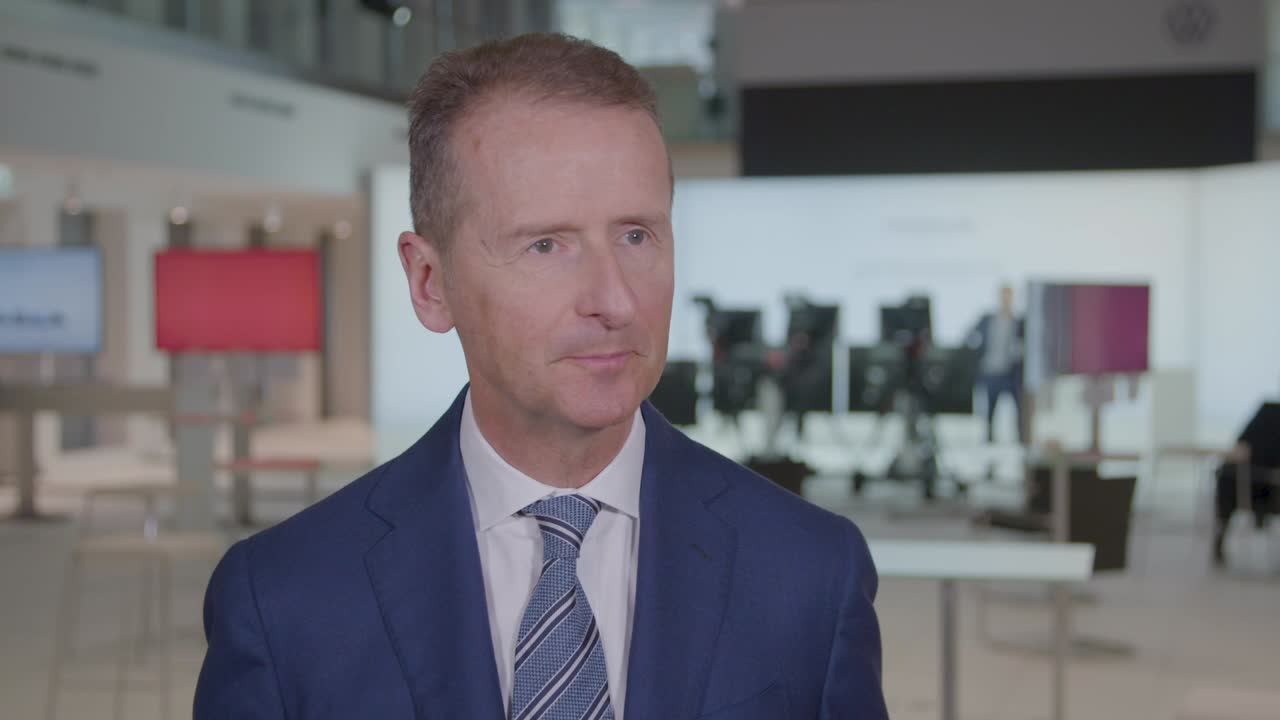At EUR 88.4 billion, the Volkswagen Passenger Cars brand’s sales revenue in 2019 was 4.5 percent higher than in the previous year. Operating profit before special items increased to EUR 3.8 (3.2) billion. Improvements in the mix and price positioning in particular compensated for lower sales of Volkswagen Passenger Cars models and for launch costs and negative exchange rate effects. The operating return on sales before special items increased to 4.3 (3.8) percent. The diesel issue gave rise to special items of EUR –1.9 (–1.9) billion.
The Audi brand’s sales revenue declined to EUR 55.7 (59.2) billion in fiscal year 2019. The reason for this was the Group’s internal relocation of the multibrand sales companies. Operating profit (previous year’s figure excludes special items) amounted to EUR 4.5 (4.7) billion. Mix and product cost improvements offset negative effects from model start-ups and phase-outs, higher upfront expenditure for new products and technologies, an unfavorable exchange rate trend and personnel cost increases. The operating return on sales (previous year’s figure excludes special items) was 8.1 (7.9) percent. The financial key performance indicators for the Lamborghini and Ducati brands are included in the financial figures for the Audi brand.
Sales revenue at the ŠKODA brand increased by 14.5 percent in 2019 to EUR 19.8 billion, partly due to initial consolidation following the assumption of regional responsibility for India. Operating profit improved by EUR 0.3 billion to EUR 1.7 billion. Volume increases, mix optimizations and pricing measures more than compensated for negative effects resulting from cost increases and higher upfront expenditure for new products. The operating return on sales stood at 8.4 percent, compared to 8.0 percent in the previous year.
SEAT continued its upward trend in the reporting year: Sales revenue was EUR 11.5 billion, exceeding the previous year’s record figure by 12.7 percent. Operating profit rose to EUR 445 (254) million, which was also a new record. Particularly volume and mix effects had a positive impact. The SEAT brand’s operating return on sales improved to 3.9 (2.5) percent.
The Bentley brand generated sales revenue of EUR 2.1 billion in 2019, exceeding the equivalent prior-year figure by 35.1 percent. Operating profit improved to EUR 65 (–288) million driven by higher volumes, as well as by cost savings in connection with the ongoing efficiency program together with mix effects and exchange rate trends. The brand’s operating return on sales increased to 3.1 (–18.6) percent.
Porsche Automotive’s sales revenue increased by 10.1 percent to EUR 26.1 (23.7) billion in fiscal year 2019. Operating profit before special items improved by 2.4 percent year-on-year to EUR 4.2 billion. Volume and mix improvements as well as product cost optimization compensated for negative exchange rate effects and cost increases. The operating return on sales before special items was 16.2 (17.4) percent. The diesel issue gave rise to special items of EUR –0.5 billion in the reporting period.
Sales revenue by Volkswagen Commercial Vehicles in fiscal year 2019 was almost on a level with the previous year, at EUR 11.5 (11.9) billion. In particular, increased fixed and development costs for new products reduced operating profit to EUR 510 (780) million. Improved product costs had a positive effect. The operating return on sales was 4.4 (6.6) percent.
Scania Vehicles and Services generated sales revenue of EUR 13.9 (13.0) billion in fiscal year 2019. Operating profit increased by 24.8 percent to EUR 1.5 billion. In addition to higher vehicles sales and a stronger genuine parts and service business, improvements in the mix as well as exchange rate effects had a positive impact on profit. The operating return on sales was 10.8 (9.3) percent in the reporting year.
Driven by higher volumes, sales revenue at MAN Commercial Vehicles climbed to EUR 12.7 billion in 2019, exceeding the prior-year figure by 4.6 percent. Operating profit was up on the prior-year period at EUR 402 (332) million, which was negatively impacted by expenses incurred in connection with the restructuring of activities in India. The brand’s operating return on sales was 3.2 (2.7) percent.
The sales revenue of Volkswagen Financial Services in the reporting year amounted to EUR 38.0 billion, an increase of 15.8 percent on the previous year. Operating profit rose by 13.3 percent and hit a new record of EUR 3.0 billion. The increase was mainly attributable to business growth.
Frank Witter, Group Board of Management Member for Finance and IT, said, “The spread of coronavirus is currently impacting the global economy. It is uncertain how severely or for how long this will also affect the Volkswagen Group. Currently, it is almost impossible to make a reliable forecast. We are making full use of all measures in task force mode to support our employees and their families and to stabilize our business.”








